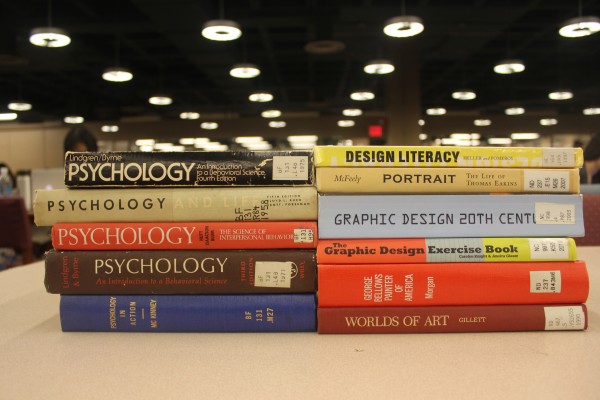Deciding on Majors: Passion Versus Profit
Acevedo and Moniot agree, money shouldn’t be a deciding factor when it comes to picking a major. (Jess Luszczyk/The Observer)
March 25, 2015
As freshmen contemplate what majors they will choose next year and as upperclassmen reflect on their recent choices, students at Fordham College at Lincoln Center (FCLC) had trouble reconciling choosing between money and passion.
According to a study by Georgetown University, there is a wide payment gap between lucrative majors such as the STEM ones (science, technology, engineering, math), and majors such as social work or architecture. The study shows that engineering majors earn on average $57,000 per year, while arts, psychology or social work majors earn roughly $31,000 per year.
For students like Benjamin Conlin, FCLC ’17, the work itself is more rewarding than the pay. Conlin has a personal interest in the social sciences. He initially wanted to double major in anthropology and English, but switched to a double major in English and communications.“I want to get into writing, and I find the topic of communications very interesting. I’m interested in writing for TV shows, so they work well together,” he stated.
Anitra Singh, FCLC ’15, chose the economics major with both potential salary and her interests in mind. “Going into college I was definitely interested in it, but I also picked it knowing that it would help me earn more money,” she stated. “I really thought that New York was the hub of finance related jobs.” However interest played its part as well. “Now I’m shifting more towards picking passion over money,” Singh continued.
For Nicholas Primiano, FCLC ’16, salary was of secondary importance, preceded by the amount of time spent in college and interest in the field. He is part of a five-year combined plan program that Fordham has with Columbia University, first studying computer science and mathematics at Fordham for three years and then bio-medical engineering for two years at Columbia.
“I have always been interested in computer science,” he stated, “ but I also liked that it gave me more time to decide.” Primiano wants to pursue a medical degree after college, so he also considered “what would be the best hack to get into a good medical school.” According to Primiano, “money was a factor, but it certainly was not the only one, as my decision was a compromise between something that I love and a way that I could have a good salary.”
Nicole Kucik, FCLC ’17, decided to pursue a major in computer science her freshman year. “It’s the best way for me to help people,” she said. When asked if she was planning on pursuing a master’s degree, Kucik stated that graduate school “definitely helps,” as “there’s only so much you can learn in [undergraduate] college.”
Associate Professor of Social Service Gregory Acevedo Ph.D. knows that social work is an area that is “not as lucrative with only a bachelor’s degree.” In this particular area, job prospects are greater for students who go further after they graduate, and become Licensed Clinical Social Workers (LCSW). In this case, a master’s degree usually serves as a stepping stone to a doctorate, according to Acevedo. Fordham University has one of the largest schools of social work in the country. Given the University’s Jesuit mission, “it is a crucial profession, especially when it comes to social change and the pursuit of justice,” Acevedo said.
Dr. Robert Moniot, associate dean of FCLC and associate professor, echoed Fordham’s Jesuit tradition, stating that college is not about the major and chosen career path but about the experience.
“Succeeding depends more on your character, a big part of getting a job is how you present yourself,” Moniot said. Both Acevedo and Moniot believed that financial prospects should not be a deciding factor when it comes to students’ majors.
A majority of Fordham graduates do not pursue a Master’s degree. According to Career Insights, a tool developed by Career Services to help gather data on graduating classes, 21 percent of liberal arts graduates in the class of 2014 pursued graduate school. Graduate schools across the nation have seen an overall decrease in enrollment.
“If you are smart and you maintain a high GPA, you can major in anything and they will be interested in hiring you. It depends more on your character,” Moniot stated.












